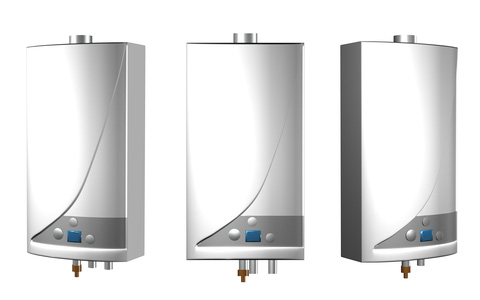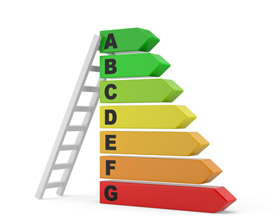Gas Boilers



Boiler Installations, Service, Maintenance and Repair
Boilers come in many types, shapes and sizes, so choosing one is not easy. Viesmann produce some of the most reliable, quiet boilers available today and that is why we recommend using a Viesmann boiler, for their quality of build and efficiency. Their Vitodens range of boilers have a very high quality heat exchanger which are also backed by a 5 year warranty when fitted by Viesmann approved installer giving you peace of mind for years to come. We have been approved to install and maintain Viessmann Boilers. Visit the viessmann website to find out more.
Which Boiler ?
Whatever boiler you have in your home, we have the experience of working with products from many manufacturers and a variety of types. We will make honest recommendations regarding the condition of your boiler and whether to repair it or get a replacement. Consider the lifetime of a boiler, around 15 years and the dangers of continuing to use an old boiler that may be faulty and wasting you money.
Boiler Types
Back Boiler
Back boilers usually sit behind a wall mounted fire in a room that has a chimney. The boiler sits behind the fire in the chimney void. They are great in the respect that they hide your boiler away in a space that would not always have been used for anything else.
This was a common way of providing heating and hot water. Generally they use gravity to heat the hot water cylinder (hot water rises compared to cold water). You can normally tell this because you need hot water on, on the programmer with central heating. You normally have large 1" pipes running up to your cylinder. These systems have lasted the test of time and are generally very reliable but inefficient as they don't pump water to the hot water cylinder. Boiler manufacturers do not recommend the installation of new boilers onto a gravity system without it yet being converted into one that is fully pumped.
Conventional Non-Condensing Boiler-wall mounted or floor standing
Also known as a heat only boiler, these boilers produce heat that is pumped through a hot water cylinder and the radiators by a valve(s). Some have fans to push the exhaust gases out of the boiler, some do it by convection. Generally, these boilers are very reliable but the older versions are not very efficient.
Conventional Non-Condensing Combi Boiler-wall mounted or floor standing
Heating and hot water all form in the same box. No stored water in a cylinder, storage tanks and bath after bath of hot water. These are dependent on good mains water pressure to drive the water through the taps. New combi boilers are very reliable and provide very good flow rates.
Condensing Boilers
Due to the demand for more efficient boilers, from April 2005, all boilers to be installed must be high efficiency condensing boilers.
There are some exceptions to this if the parameters of a property can’t accommodate a condensing boiler. This can be applied for with our help but 90% of the time, a condensing boiler must be fitted.
Simply, a condensing boiler has a bigger heat exchanger and absorbs more of the energy from the gas burnt into the water. As the exhaust gases are cooler, vaporised water in the flue condenses and produces a steam plume from the flue. This condensate also runs into a trap in the boiler and must be discharged into a waste outlet or a soak away. The location of these boilers is crucial as the plume from the flue could be a nuisance, so we are happy to offer advice on this.
Advanced Boiler Controls
Boilers now require a minimum level of control, as specified by the changes in Building Regulations in April 2002. Their aim is to reduce the amount of heat required to heat a property and reduce CO2 emissions.
Adding system controls adds to the efficiency of your boiler because it will use less gas. Your Bright Blue Gas Engineer can advise you on the use of such controls as thermostats, programmers and time-switches.
Modern Boilers now offer better Efficiency
Having to replace your boiler is not all bad news. The purchase of a new boiler is only part of the overall cost of its lifetime. The gas that your unit consumes over 15 years would cost you around £5000 to £8000, so making the switch to the new energy efficient boilers could save you 10% on these bills.
Take a look at the table near the bottom of the page to see comparisons on fuel cost. The information is supplied from SEDBUK, a government endorsed database. The supply information comparing the various running cost for gas boilers and central heating systems in a typical UK household, due to the introduction of new energy efficient boilers. The figures represent an average for that property type, but you should also be aware of variations, such as single or family occupancy, property exposure to the wind and climate (living in the north or south of the country), cavity wall insulation...etc.
| Boiler type | Seasonal efficiency | Flat | Bungalow | Terraced | Semi - detached | Detached |
|---|---|---|---|---|---|---|
| Old boiler (heavy weight) | 55% | £267 | £341 | £354 | £397 | £550 |
| Old boiler (light weight) | 65% | £231 | £293 | £304 | £340 | £470 |
| New boiler (non-condensing) | 78% | £197 | £249 | £258 | £289 | £396 |
| New boiler (condensing) | 88% | £178 | £224 | £232 | £259 | £355 |
An older boiler may have 55% efficiency compared to 88% for a modern condenser boiler. In worse case scenarios this may represent a saving of £3000 over its lifetime. Always consider purchasing a boiler with high energy efficiency rather than the cheapest, as in the long run these will most likely represent the best savings and value.

Modern boilers now include a label with information about its energy efficiency rating. The SEDBUK label rates a boilers seasonal efficiency from A to G with A being the most efficient and G the least. In 2009 SEDBUK replaced this with a percentage system. Look out for products that have these labels, helping you to choose products that run more efficiently and will help you save money.
What preventative measures can I take against Carbon Monoxide Exposure?
- Ensure that any work carried out in relation to Gas Appliances in domestic or commercial premises is to be undertaken by a Gas Safe Registered engineer, competent in that area of work.
- HSE strongly advises that gas appliances and/or flues are installed and serviced regularly for safety by a Gas Safe Registered engineer. If you live in tenanted accommodation, your landlord has a legal duty to carry out an annual gas safety check and maintain gas appliances. They must provide you with a copy of the completed gas safety check certificate.
- Always make sure there is enough fresh air in the room containing your gas appliance. If you have a chimney or a flue, ensure it is not blocked up and also ensure that vents are not covered.
- If you plan to install a gas fire in a bedroom, use a Gas Safe Registered engineer; do not use unflued appliances like paraffin heaters and cabinet heaters. Get your chimney swept from top to bottom at least once a year by a qualified sweep. If you have appliances that use other fossil fuels, make sure they are serviced and maintained by a competent person.
What is Carbon Monoxide?

Carbon monoxide (CO) is a colourless, odourless, tasteless, poisonous gas produced by incomplete burning of carbon-based fuels, including gas, oil, wood and coal. Carbon-based fuels are safe to use. It is only when the fuel does not burn properly that excess CO is produced, which is poisonous. When CO enters the body, it prevents the blood from bringing oxygen to cells, tissues, and organs.
You can’t see it, taste it or smell it, but CO can kill quickly without warning. According to the HSE statistics around 20 people die from CO poisoning caused by gas appliances and flues that have not been properly installed, maintained or that are poorly ventilated. Levels that do not kill can cause serious harm to health if breathed in over a long period. In extreme cases paralysis and brain damage can be caused as a result of prolonged exposure to CO. Increasing public understanding of the risks of CO poisoning and taking sensible precautions could dramatically reduce this risk.

